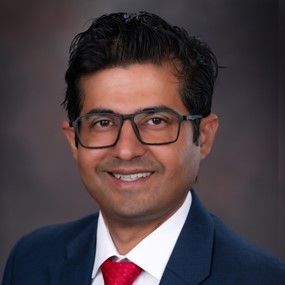Office Hours
Tuesday, Thursday 9:20–10:50 am
In the news
Education
Ph.D. University of New Mexico
M.Phil. The Islamia University of Bahawalpur
M.A. University of Peshawar
About Me
Sayyed Fawad Ali Shah is an assistant professor in the School of Communication & Journalism at Auburn University, where he teaches courses in reporting and multimedia journalism.
His research centers on examining cutting-edge developments in journalistic practices across cultures and nations. He explores contemporary threats to journalism as an institution, the social implications of emerging technologies, and journalists’ mental health. He is also interested in exploring the role of communication and journalism in reducing health disparities among marginalized communities across different cultural contexts. His work has been published in Journalism: Theory, Practice, and Criticism, Vaccine, Health Education & Behavior, and JMIR mHealth and uHealth.
Prior to his career in academia, Shah worked as a journalist for local, national, and international media outlets for almost a decade. As a journalist, he covered a wide variety of beats such as war, ethnic and religious conflicts, crime, education, health, and climate.
He currently serves as the co-chair of the Health Communication Working Group of the International Association of Media and Communication Research (IAMCR).
Research Interests
Journalism practices, threats to journalism as an institution, health communication
Publications
Books
Shah, S.F.A, Ginossar, T. (Eds.). (2025). “Health and science journalism in the 21st century: Emerging practices during crises.” Lexington.
Ginossar, T., Shah, S.F.A, Weiss, D. (Eds.). (2023). “Vaccine communication online: Counteracting misinformation, rumors, and lies.” Springer Nature.
Peer-Reviewed Articles
Shah, S. F. A., Archiwal, A., Hussain, S. (2024). Journalism in chains: A field theory approach to understanding the lived experiences of Afghan journalists. Journalism & Mass Communication Quarterly. 0(0). https://doi.org/10.1177/10776990241304416.
Shah, S. F. A., Murphy, B. E., Joyce, T. A., & Cunningham, B. (2024). “I don’t get sick leave”: Small-market newspaper journalists’ perceptions of the impact of occupational stressors and organizational support on their mental well-being. Newspaper Research Journal, 45(4), 472-491. https://doi.org/10.1177/07395329241267030.
Hussain, S., Ali Shah, S. F., & Bostan, H. (2024). Analyzing Hateful Comments against Journalists on X in Pakistan. Journalism Studies, 26(10), 1187–1207. https://doi.org/10.1080/1461670X.2025.2492734.
Shah, S.F.A., Cvetkovic, I., Ginossar, T., Ullah, R., Baber, D., Slaughter, A. (2024). Online harassment, psychological stressors, and occupational dysfunction among journalists working in a conflict zone. Digital Journalism, 12(6), 735-752. https://doi.org/10.1080/21670811.2024.2308582.
Hussain, S., Abbas, Q., Shah, S.F.A. (2024). Populism fuels hate speech and disinformation: Evidence from political discourse on X (formerly Twitter) in India and Pakistan. International Journal of Communication (IJoC), 18(2024). 5694- 5713.
Shah, S.F.A., Ginossar, T., Ittefaq, M. (2023). "We always report under pressure”: Professionalism and journalistic identity among regional journalists in a conflict zone" Journalism, 24(4), 709-728. DOI: 10.1177/14648849211050442.
Courses Taught
JRNL 3100: Global Journalism and Media Systems
JRNL 2310: Reporting
JRNL 3510: Multimedia Journalism
COMM 7010: Qualitative Methods of Communication Research


